Welsh Proms founder fears school music 'crisis'
- Published
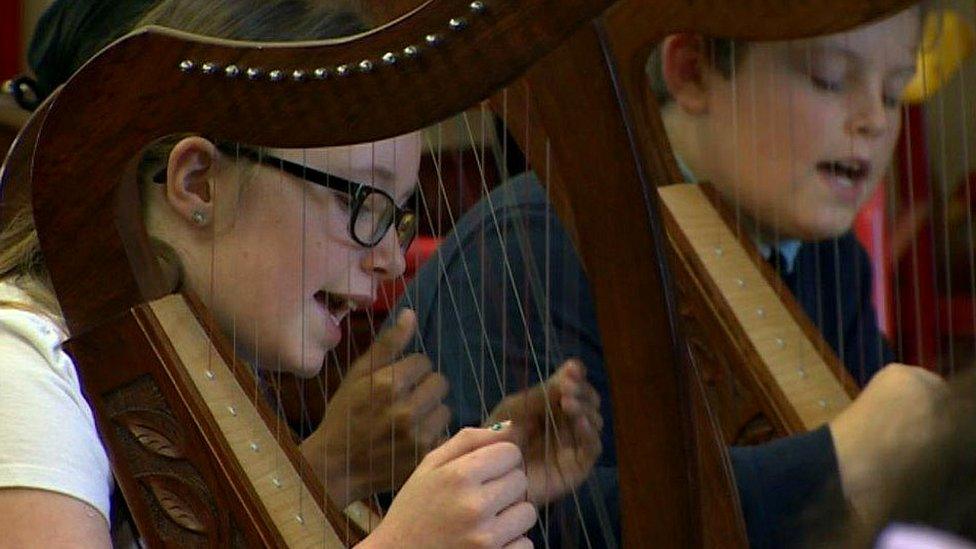
At this school in Cardiff, picking up an instrument is seen as important for self-confidence
Cuts to school music services are causing a "crisis" that will impact professional orchestras, a leading conductor has warned.
Owain Arwel Hughes said a lack of tuition opportunities meant musicians from Wales could "disappear" from some orchestras.
He is a former conductor at National Youth Orchestra of Wales, which had a record low in applications this year.
The Welsh Government said it would help fund instruments for schools from 2017.
Mr Hughes, who founded the Welsh Proms and was a former conductor with the BBC National Orchestra of Wales, said: "One of the joys I still have is conducting different orchestras everywhere and finding Welsh people, Welsh-speaking very often, in orchestras.
"But if we're not going to have this development of the youngsters playing instruments and being taught, that will disappear.
"Some of the world's greatest musicians achieved their success because they were able to play an instrument in school.
"And that's what's awful today is that the instruments aren't there and on top of that the teachers aren't there either. So I think it's a crisis, a real crisis at the moment."
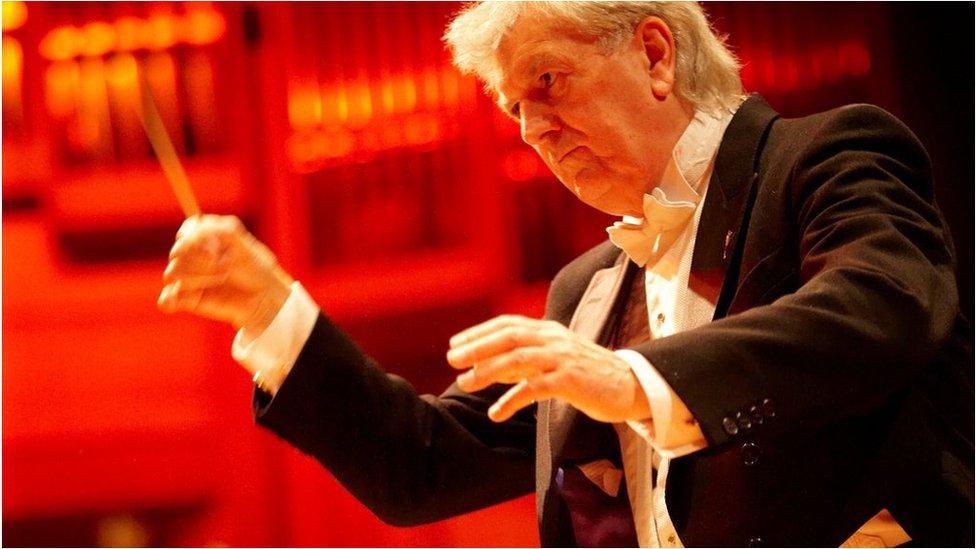
Music services for schools vary across Wales. Some councils, such as Cardiff, have cut the budget and replaced it with specific funding for music within the broader schools budget. In 2016/17 £172,000 is being made available.
Local authorities also share music services that provide some access to teaching and instruments.
Economy Secretary Ken Skates recently published a long-term vision for culture, external in Wales which included the creation of a new fund for musical instruments.
Music is also part of the Welsh Government's £20m cultural programme being piloted in some schools, called Creative Learning through the Arts, external.
Mr Skates said: "There's no doubt that local government, just as Welsh Government, have had major issues trying to manage reducing budgets during this period of austerity.
"But the falling amount in revenue that we are getting from UK government should not impact on the life chances of young people.
"For that reason we are putting together a music endowment fund, so that all people, no matter what their background, can realise their musical talent and potential."
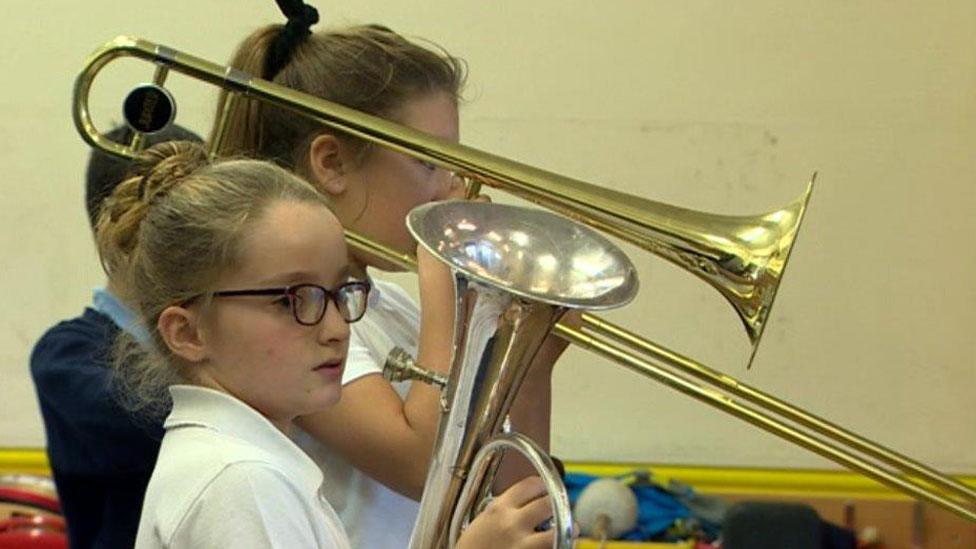
Since Cardiff council cut the budget for its music service, schools in the area must fund their own instrument lessons and activities.
Emma Coulthard is head of the Cardiff council and Vale of Glamorgan council music service, working with head teachers to fund and provide music lessons and instruments.
She said: "There's been quite a cultural change, in that music tuition in Wales used to be free and it was doled out to schools.
"But the financial challenge has forced us to think about what can we create that people would be willing to invest in.
"Because ultimately there would never be enough money for every child in every school to have any instrument they wanted, so I suppose it was a matter of focusing on the best of what we did do and creating that hunger for schools to buy into it so that more children have the opportunity."
Ms Coulthard said the opportunities for talented children to make further progress with an instrument had reduced since budgets were cut.
"We have had to focus more on whole-class provision, because schools will have a budget for that and are more likely to buy into it. The bit that is missing is those children who show real talent - we would like to be able to provide better progression routes.
"Sometimes we can talk to a head teacher and identify those children who are more able and talented, but finding instruments is a bit of a challenge because we don't have a stock of spare instruments.
"We are hoping that, with the new endowment fund, that will be tackled so that children get the same opportunities."
Jason Clark, head at Baden Powell Primary School in Tremorfa, Cardiff, said the benefits to his school were worth the investment.
Her clients include Baden Powell Primary School in Tremorfa, where head teacher Jason Clark said the benefits to the school were worth the investment.
"The self-confidence is fantastic and it obviously helps develop their music skills," he said.
"But incidentally, by learning an instrument they develop their cooperation, their communication, their team-work skills, their problem-solving skills, their evaluation skills, which they then can take back into the classroom to help them with their literacy and numeracy development."
- Published9 July 2014
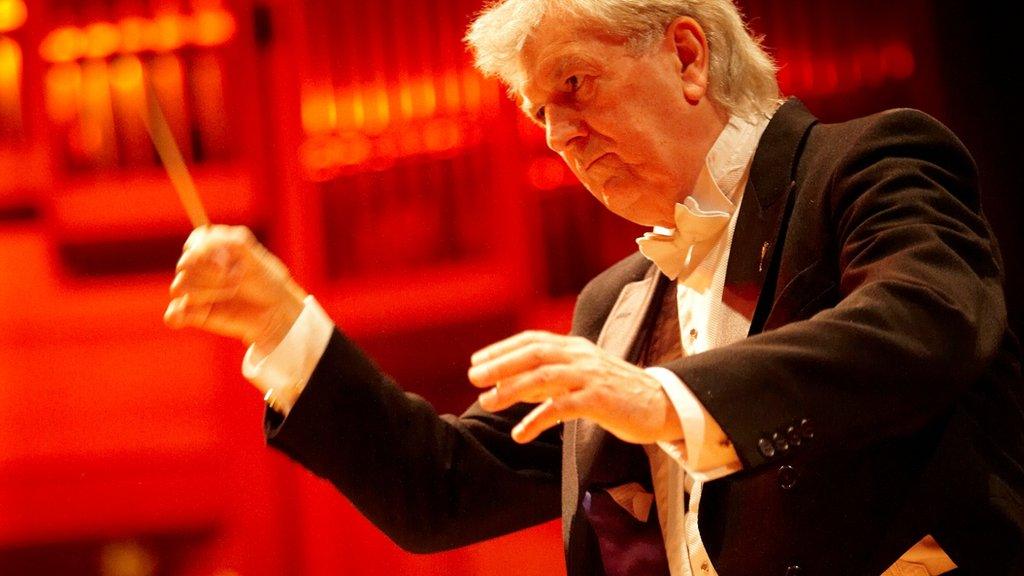
- Published19 April 2016
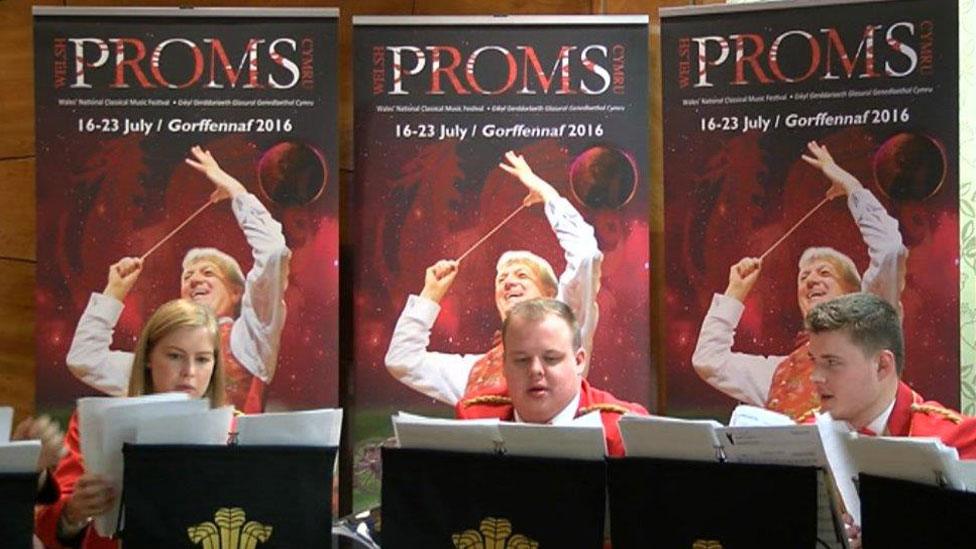
- Published16 January 2013
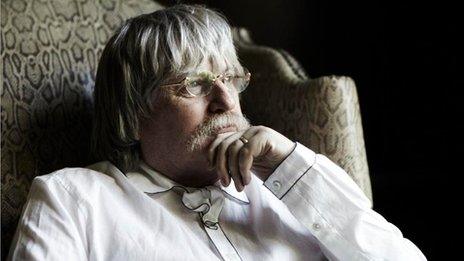
- Published9 July 2015
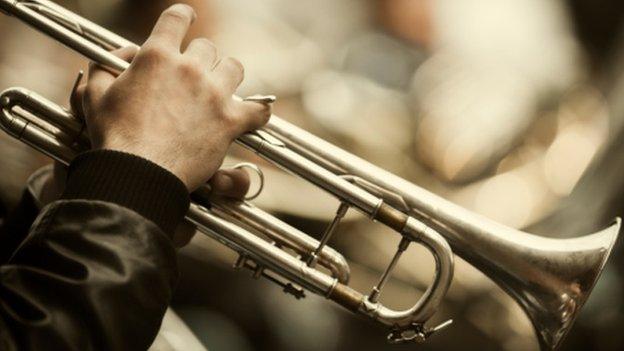
- Published25 March 2011